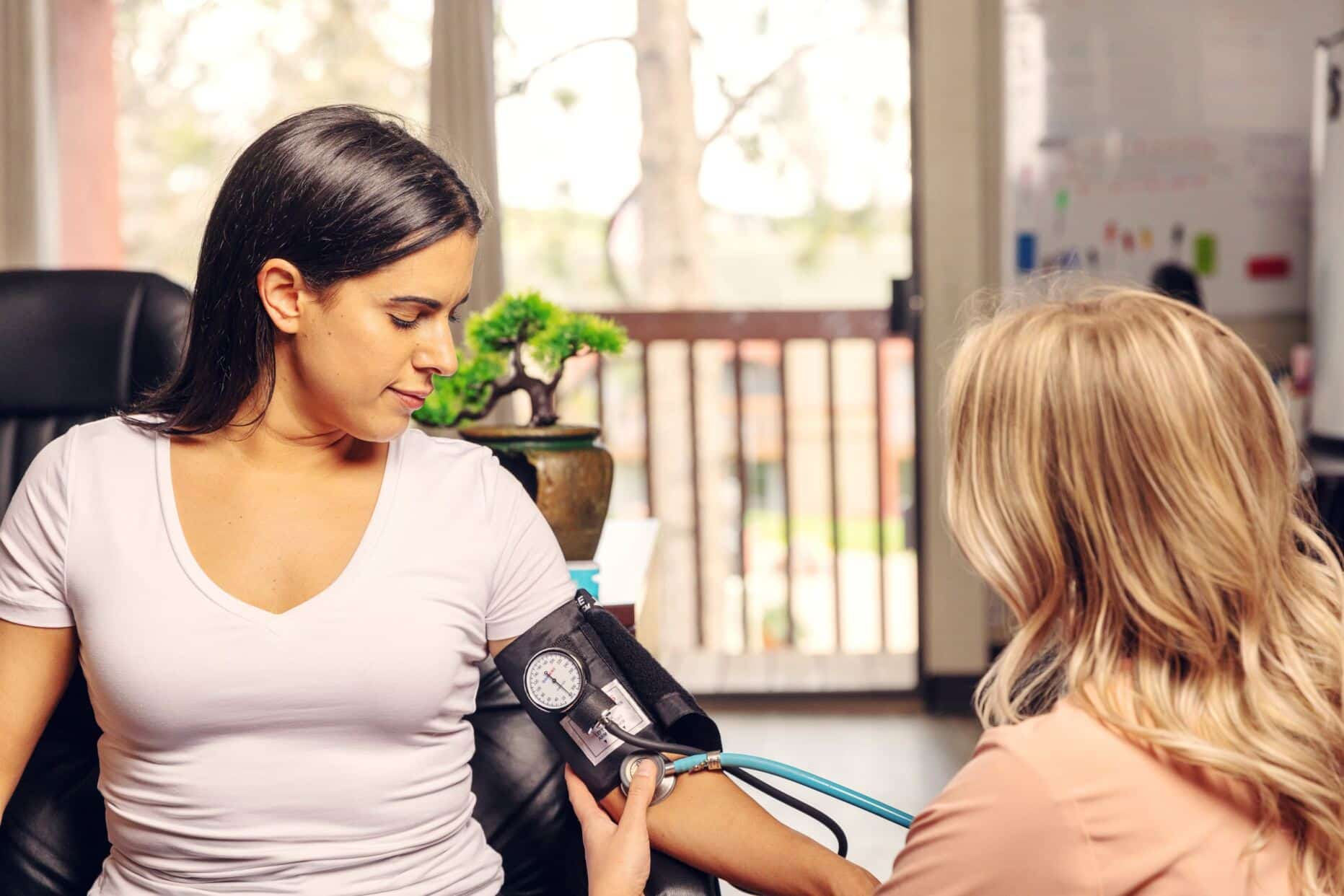A partial hospitalization program (PHP) is a structured outpatient program that was created to diagnose or provide active treatment of serious mental illnesses such as substance use disorder when there is a reasonable expectation of improvement. While in partial hospitalization, people will work to overcome their crises, understand their triggers, and learn healthy and adaptive coping mechanisms. PHP is used in lieu of full hospitalization, and to help prevent relapse. Basically, it is a short-term, intensive treatment option that was designed for people who do not need 24-hour care.
Partial hospitalization programs can provide more freedom and better recovery-based care with higher levels of patient satisfaction than an inpatient treatment program. It is not as intense as an inpatient program, but more intense than an outpatient service. In terms of intensity, think of it as a midpoint between the two types of treatment programs. Further, a PHP program is more intense than the care a person would receive if they chose to go to a mental health professional or doctor’s office. They are also different from an outpatient program because they provide active and intense treatment. When compared to inpatient discharge, patients and families tend to be more satisfied with care one year after discharge.
Things you may be wondering about PHPs
Patients in partial hospitalization are not under constant supervision so they need to show initiative and dedication to their treatment plans. The program is created for people who can reap the benefits of group therapeutic discussions and activities as well as clinical counseling. Patients also need to be able to have the mental and physical stamina to participate in several hours of therapy for several days each week. Patients who are actively hallucinating, have organic brain disorders that do not permit them to learn, are unable to concentrate, can’t maintain appropriate behaviors, and abuse substances constantly during treatment are most likely unsuitable for this form of therapy.
PHPs can be used instead of inpatient programs for people who need crisis stabilization and to help manage their symptoms. They provide crisis stabilization by helping people quickly return to their own environments. They are not suitable for people who are suicidal or homicidal, these cases would need inpatient care. A partial hospital program can also be used as a way to transition from a hospital program or as a step to shorten an inpatient treatment stay. They can also be used if a person begins to use drugs or drink alcohol again and needs more intensive services to be restabilized. In an inpatient setting a detox can be accomplished in just a few days. In an outpatient setting, a detox can last weeks or months.
How will I get there?
If you are interested in a partial hospitalization program the first thing that should be done is to get an assessment from a mental health professional or medical professional. Do not try to make this decision alone. The assessment will help you figure out the best form of treatment to meet your unique situation and needs. You will be assessed on things like if you are able to remain safe and not a danger to yourself or others and if you are able to participate in and benefit from the PHP treatment. It will also determine if you are stable enough to be medically unsupervised for brief periods of time like overnight. The purpose of the assessment is to make sure you will not be engaging in substance use disorder at night or when you are not at the program. Remember, everyone involved has your best interest in mind and only wants to see you succeed in overcoming your addiction,
Once a doctor or mental health professional determines that a PHP is the best route of treatment for you, it is important to discuss the costs with your health insurance or medicare. As with any form of treatment, it can get expensive to undergo this type of addiction treatment.
Many PHPs will offer transportation to and from the program. Also, depending on your specific insurance, some companies will provide rides for medical appointments. However, if transportation is not provided a person can take public transportation or ask a friend or family member for help.
What will my day at a PHP be like?
During PHP you will live at home and will attend several therapeutic groups for 20 hours a week. You will meet 3 to 5 times per week depending on what is deemed necessary based on each individualized treatment plan. All treatment occurs during the day so there is no need to spend the night.
Generally, everyone who attends PHPs will follow the same pattern each day regardless of the type or the location of the PHP. Once you arrive at the program, your day will start with participating in 2 to 3-morning counseling sessions with a 10-15 minute break in between. After that, at some locations, a complimentary lunch will be provided. Once lunch is over, an afternoon counseling session will follow. Group sessions are typically made up of 10 patients per session. When you are not in sessions you will most likely have some form of consultation with a nurse to check on your physical health. The day will end when you travel back home or to work.
The types of counseling sessions and treatment that you may experience during the day are individual and group therapy, vocational and educational counseling, family meetings, medically supervised use of medications, random urine screenings for substance use disorder, along with treatment for any dual mental disorders. Also, a PHP will provide medically supervised withdrawals and educational classes about drug use. Various behavioral therapies such as cognitive behavioral therapy are used to support the treatment process.
Depending on the type of program, some programs consist of meals, occupational therapy, individual treatment training and education on a patient’s specific condition, support groups that bring people together to socialize, as well as testing and training for job skills.
How long does a PHP last?
PHP typically lasts 3 to 4 weeks. However, this depends greatly on each individual. For some people, treatment can last as long as 6 to 9 months.
Substance use disorder is a chronic disorder that can be a lifelong struggle. Relapse is often a part of many types of substance use disorder. Therefore, once a person finishes their treatment, aftercare is recommended and in some cases provided.
References
- Impacts Associated with Medicare Psychiatric PPS: A study of Partial Hospitalization Programs. Centers for Medicare & Medicare Services Office of Research, Development, and Information.
- Mental health care (partial hospitalization). Medicare.gov.
- Partial Hospitalization. National Association for Behavioral Healthcare.
- Practice Guideline for the Treatment of Patients With Substance Use Disorders. American Psychiatric Association.
- Providing crisis-oriented and recovery-based treatment in partial hospitalization programs. Psychiatry (Edgmont).
- Treatment Settings. John Hopkins Medicine: Center for Substance Use Disorder Treatment and Research.
Medical disclaimer:
Sunshine Behavioral Health strives to help people who are facing substance abuse, addiction, mental health disorders, or a combination of these conditions. It does this by providing compassionate care and evidence-based content that addresses health, treatment, and recovery.
Licensed medical professionals review material we publish on our site. The material is not a substitute for qualified medical diagnoses, treatment, or advice. It should not be used to replace the suggestions of your personal physician or other health care professionals.







